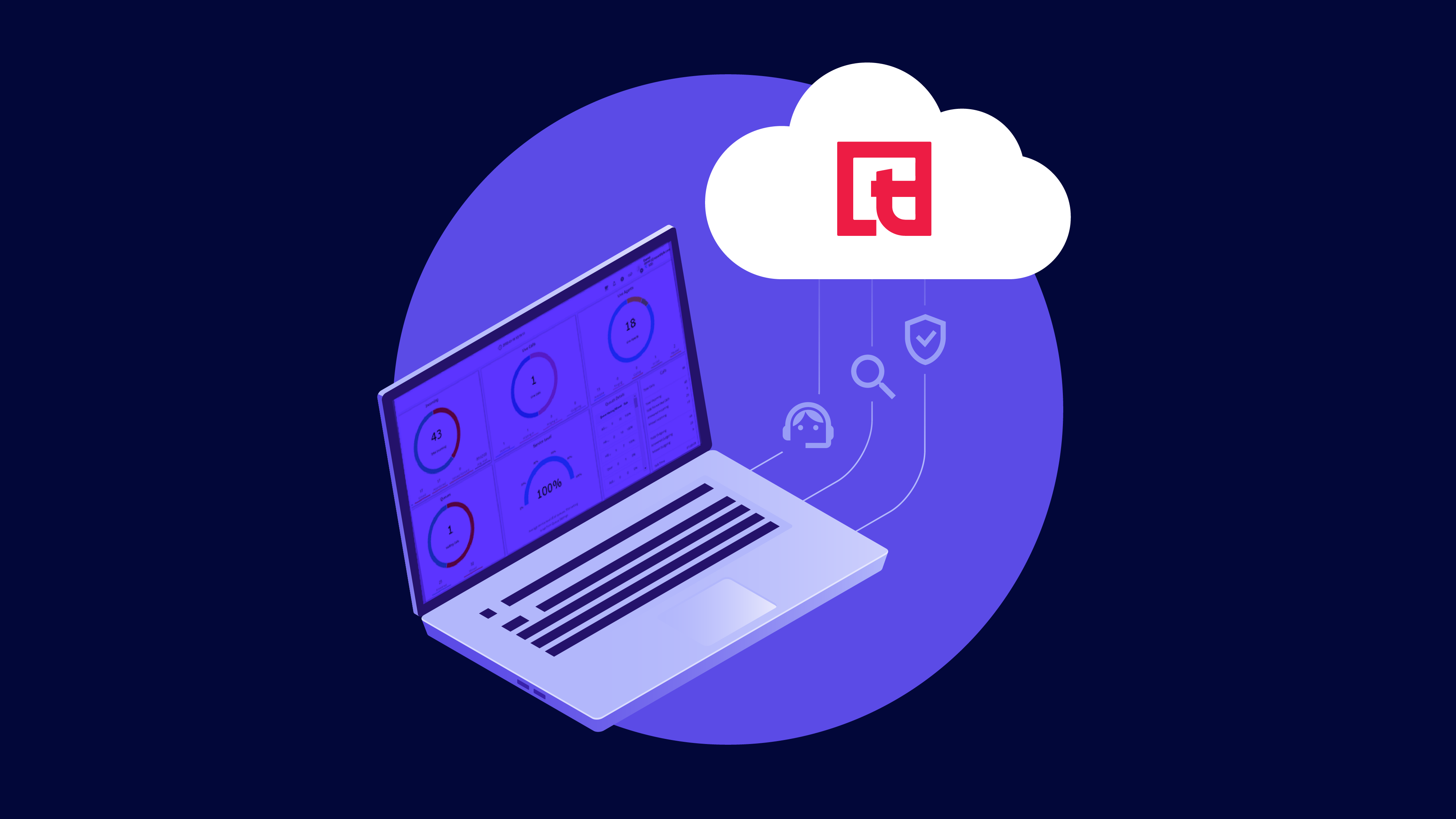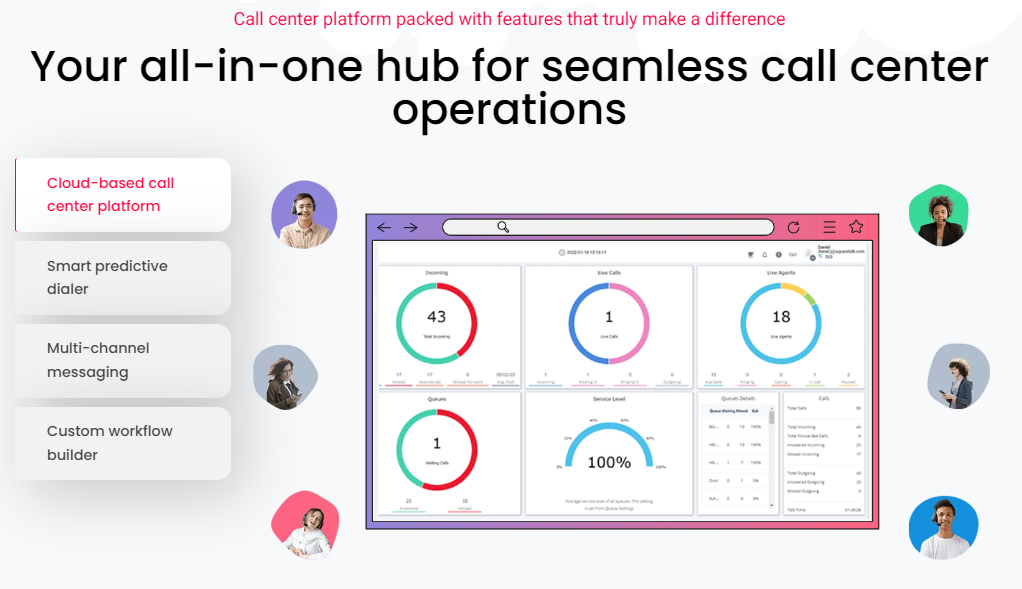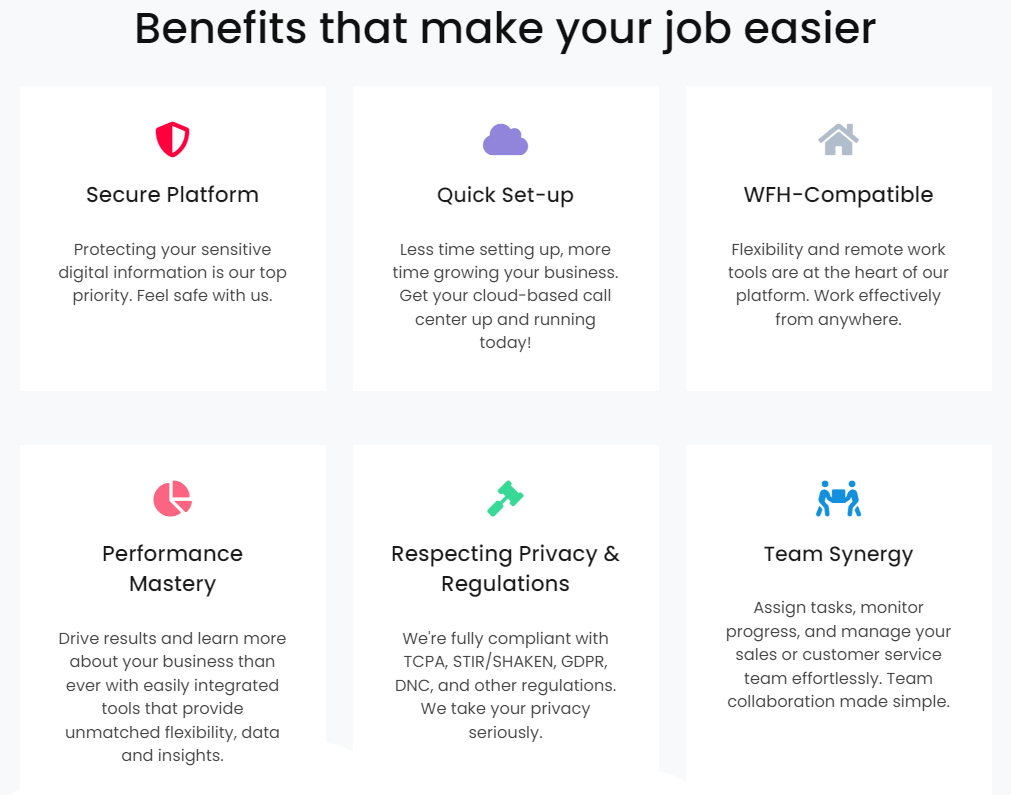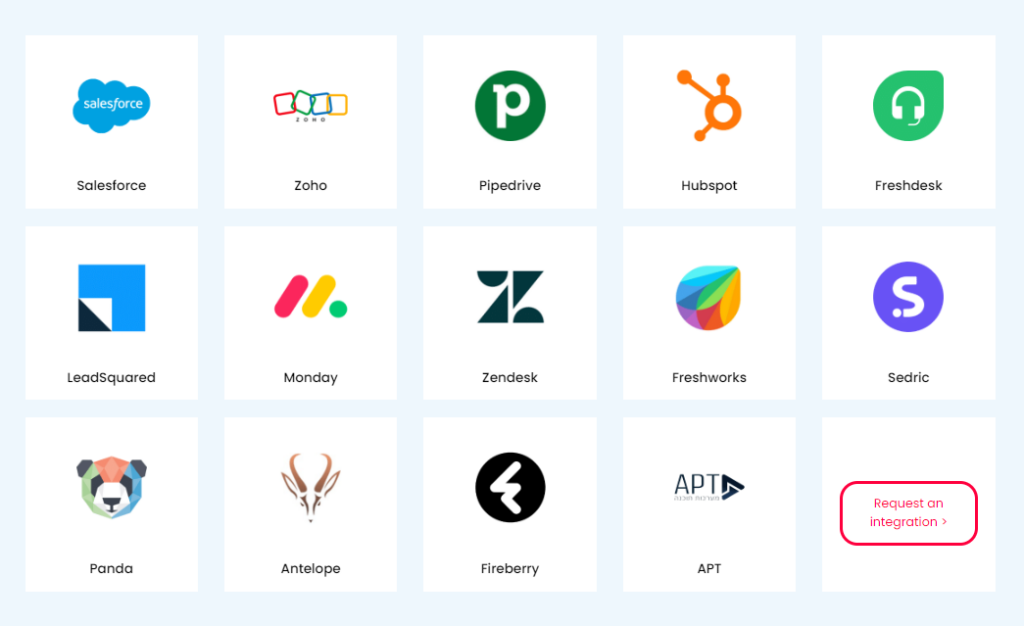
Accept crypto with CoinGate
Accept crypto with confidence using everything you need in one platform.
What’s The Best Contact Center Software in 2025?

Choosing the right contact center software is vital for keeping your communication efficient, ensuring customer satisfaction, and driving business growth.
With so many options available, finding the perfect fit can be overwhelming. However, you might’ve stumbled across the best one so far.
Squaretalk, a leading cloud-based communication solution, is designed to meet the needs of modern businesses, especially those in the BPO (Business Process Outsourcing) sector.
In this comprehensive review, we’ll explore why Squaretalk is considered one of the best contact center software options available today.
Mind that Squaretalk is also a crypto-friendly company, meaning they will accept cryptocurrencies for their services through CoinGate crypto payment gateway.
What is Squaretalk?

Squaretalk is a cloud-based communication platform designed primarily for Business Process Outsourcing (BPO) contact centers. Originally known as Deskforce, Squaretalk rebranded to better reflect its broadened capabilities in the field of business communications.
The company offers a comprehensive suite of tools for managing voice, text, chat, and messaging services. Their platform is particularly noted for its strong integration capabilities, allowing it to seamlessly work with other major business communication systems, such as Salesforce and Zoho.
One of Squaretalk’s standout features is “Lynx,” a graphic-based integration studio that simplifies the process of designing and deploying complex workflow automations. This tool empowers businesses to optimize their communication workflows with minimal technical expertise.
Squaretalk also emphasizes flexibility and security, providing end-to-end encryption and military-grade security measures, especially beneficial for decentralized teams working remotely. The platform is praised for its ability to scale, making it suitable for businesses of all sizes, from small operations to large enterprises.
Squaretalk positions itself as a robust and adaptable solution for businesses looking to optimize their communication processes, particularly in the context of customer support and sales in BPO environments.
It might just be the best contact center software solution currently available in the market.
Who Uses Squaretalk?
Squaretalk’s services are primarily utilized by companies that operate in the Business Process Outsourcing (BPO) sector, particularly those managing contact centers.
These businesses require sophisticated and scalable communication tools to handle a high volume of customer interactions across multiple channels, such as voice, text, chat, and messaging.
The types of companies that typically use Squaretalk services include:
- Customer Support Centers: Businesses that provide customer service and technical support rely on Squaretalk to manage inbound and outbound communication efficiently. The platform’s integration with CRM systems like Salesforce and Zoho is especially useful for tracking customer interactions and improving service quality.
- Sales and Telemarketing Firms: Companies engaged in telemarketing and sales operations use Squaretalk to streamline their communication workflows. The platform’s automation features, like the Lynx integration studio, help these firms automate repetitive tasks, manage leads, and optimize agent performance.
- Financial Services: Financial institutions that require secure and reliable communication platforms for customer interactions use Squaretalk to ensure compliance with industry regulations and protect sensitive data. The platform’s encryption and security features make it a suitable choice for these companies.
- Remote and Decentralized Teams: With the rise of remote work, companies with decentralized teams benefit from Squaretalk’s cloud-based communication tools, which allow agents to work from anywhere while maintaining a high level of performance and security.
- E-commerce Businesses: E-commerce companies that manage customer queries, orders, and support across different channels often use Squaretalk to integrate and streamline their communication processes, ensuring a seamless customer experience.
Squaretalk’s flexibility, integration capabilities, and focus on security make it a popular choice among these industries, especially those that manage high volumes of customer interactions and require robust, scalable communication solutions.
Key Squaretalk Features

1. Robust Integration Capabilities
Squaretalk excels in its ability to integrate seamlessly with a wide range of CRM systems and other business communication tools. The platform’s standout feature, the “Lynx” integration studio, allows users to design and deploy complex workflow automations with ease. This tool is particularly useful for businesses that need to streamline operations across multiple communication channels, providing a significant edge in efficiency and productivity.
2. Scalable and Flexible Solutions
One of Squaretalk’s major strengths is its scalability. Whether you’re a small startup or a large enterprise, Squaretalk can adapt to your needs. The platform is designed to handle both remote and on-premise teams, offering flexibility that is crucial in today’s dynamic work environment. This makes Squaretalk a versatile choice for businesses that expect to grow and need a communication solution that can scale alongside them.
3. Enhanced Security and Reliability
In a world where data breaches and security concerns are ever-present, Squaretalk ensures that businesses can communicate securely. The platform offers end-to-end encryption and military-grade security features, providing peace of mind for businesses that handle sensitive customer information. This focus on security is a key differentiator, making Squaretalk a preferred choice for industries like finance, healthcare, and any business where data protection is critical.
4. User-Friendly Interface
Squaretalk is designed with the user in mind. Its intuitive interface makes it easy for businesses to get up and running quickly, with minimal training required. The platform’s tools are straightforward to use, allowing teams to focus on their work rather than grappling with complex software. This ease of use is particularly beneficial for businesses that need to onboard large numbers of agents efficiently.
5. Optimized for Remote Work
With the rise of remote work, Squaretalk is perfectly positioned to support decentralized teams. The platform includes features that monitor remote agents’ performance in real-time, ensuring that they have the reliable connectivity and support needed to perform at their best. This makes Squaretalk an ideal solution for businesses that operate with a distributed workforce.
Why Use Squaretalk Instead of Other Call Center Solutions?
Squaretalk stands out from its competitors in several key areas, making it a preferred choice for businesses, especially those in the BPO and contact center industries:

- Comprehensive Integration Capabilities: Squaretalk is designed with robust integration features, allowing it to seamlessly connect with major CRM systems such as Salesforce, Zoho, and more. The “Lynx” integration studio is particularly noteworthy because it enables users to design and deploy complex workflow automations with minimal technical expertise. This flexibility in integration is a significant advantage over many competitors who may not offer such easy-to-use, powerful tools.
- Flexibility and Scalability: Squaretalk’s platform is highly scalable, making it suitable for businesses of all sizes. Whether a company is a small startup or a large enterprise, Squaretalk can adjust to meet its needs. This scalability is matched by the platform’s flexibility, allowing companies to manage both remote and on-premise teams efficiently. This adaptability is critical for companies that need to scale their operations quickly without compromising on the quality of their communication infrastructure.
- Security and Reliability: Squaretalk places a strong emphasis on security, offering end-to-end encryption and military-grade security measures. This focus is particularly important for industries like financial services or any business handling sensitive customer data. The platform’s reliability ensures that businesses can maintain continuous and secure communication channels, which is a crucial competitive edge.
- User-Friendly Interface and Tools: Unlike some competitors who may offer complex or cumbersome platforms, Squaretalk is known for its user-friendly interface and tools that simplify communication management. This ease of use is beneficial for companies that need to train large numbers of agents quickly and efficiently. The platform’s focus on simplicity without sacrificing functionality makes it a better choice for many businesses.
- Strong Focus on Remote Work: In a post-pandemic world where remote work has become more common, Squaretalk’s focus on supporting decentralized teams is a significant advantage. The platform includes features specifically designed to monitor and support remote agents, ensuring they have reliable connectivity and security no matter where they are working from. This makes Squaretalk particularly appealing to companies with a large remote workforce.
These factors—strong integration capabilities, scalability, security, user-friendliness, and a focus on remote work—collectively make Squaretalk a competitive and often superior option in the crowded field of communication platforms for businesses.
What Kind of Business Challenges Can Squaretalk Solve?
Squaretalk’s services are designed to address a variety of challenges that businesses, particularly those operating contact centers and BPOs, commonly face. Here are some key problems that Squaretalk can solve:
1. Complex Communication Workflows
- Problem: Managing multiple communication channels (voice, text, chat) and integrating them with various CRM systems can be complex and time-consuming.
- Solution: Squaretalk simplifies this with its integration capabilities, allowing businesses to unify their communication channels and automate workflows. The “Lynx” integration studio lets companies design and deploy complex workflows with ease, reducing the need for extensive technical expertise.
2. Scalability Issues
- Problem: Businesses often struggle with scaling their communication infrastructure as they grow, leading to inefficiencies and increased costs.
- Solution: Squaretalk offers scalable solutions that can grow with the business. Whether managing a small team or a large, decentralized workforce, Squaretalk’s platform can be adjusted to meet the size and needs of the organization without compromising on performance.
3. Remote Work Management
- Problem: With the rise of remote work, companies face challenges in monitoring and managing remote teams, ensuring reliable connectivity, and maintaining security.
- Solution: Squaretalk is optimized for remote and decentralized teams, providing real-time monitoring of agents’ infrastructure and ensuring secure, reliable communication. This helps businesses maintain productivity and security, regardless of where their employees are located.
4. Security Concerns
- Problem: Protecting sensitive customer data in communications is critical, particularly for industries like finance and healthcare.
- Solution: Squaretalk addresses this with end-to-end encryption and military-grade security features, ensuring that all communications are secure and compliant with industry standards. This helps businesses mitigate the risks of data breaches and maintain customer trust.
5. Agent Performance and Efficiency
- Problem: Contact centers often struggle with optimizing agent performance and placing the right agents in the right roles to maximize efficiency.
- Solution: Squaretalk provides insights and tools to monitor agent performance, helping managers make data-driven decisions about team placements and training needs. This can lead to improved customer service and higher overall efficiency.
6. Integration with Existing Systems
- Problem: Many businesses use multiple software platforms, which can lead to disjointed workflows and inefficiencies.
- Solution: Squaretalk integrates easily with a wide range of business communication systems, including popular CRMs like Salesforce and Zoho. This ensures that all communication processes are streamlined and that data flows seamlessly between systems.
7. High Communication Costs
- Problem: Traditional communication systems can be expensive to maintain, especially as the company grows.
- Solution: By leveraging cloud-based solutions, Squaretalk can reduce the costs associated with maintaining and upgrading traditional communication infrastructure. This helps businesses manage their communication expenses more effectively while still accessing advanced features.
Squaretalk’s services are particularly valuable for businesses that need to manage complex communication needs, scale operations, secure sensitive data, and optimize remote or decentralized workforces.
Are There any Features that Squaretalk Does Not Provide?
While Squaretalk is a robust and flexible platform, there are some features offered by competitors that it does not provide or where it might be less comprehensive:
- Advanced AI and Machine Learning Capabilities: Some competitors, particularly larger platforms like Five9 and Genesys, offer more advanced AI-driven features, such as predictive dialing, sentiment analysis, and AI-based customer interaction routing. While Squaretalk has automation capabilities, it may not be as advanced in AI and machine learning applications compared to these larger, more established platforms.
- Native Video Communication: Platforms like Zoom or RingCentral have a strong emphasis on video communication as part of their offerings, which is not a primary focus for Squaretalk. If a business requires integrated video conferencing alongside voice, text, and chat, they might find other platforms more comprehensive in this regard.
- Comprehensive Workforce Management (WFM) Tools: While Squaretalk provides some team management features and agent insights, competitors like NICE inContact or Genesys offer more sophisticated workforce management tools, including detailed scheduling, real-time adherence tracking, and performance analytics designed for large-scale contact centers.
- Omnichannel Marketing Tools: Some competitors integrate more seamlessly with omnichannel marketing platforms, allowing for a more unified approach to customer interactions across email, social media, and more. Companies like HubSpot or Zendesk might offer more in this area than Squaretalk, which focuses more on core communication channels like voice and messaging.
- Global Presence and Support: Larger competitors might have a more extensive global infrastructure, offering better support for truly global operations with data centers in more regions, which can reduce latency and improve performance for international businesses. While Squaretalk supports remote and decentralized teams, it might not have the same level of global presence as some larger competitors.
These features might be crucial for certain businesses, depending on their specific needs, and could be reasons to consider alternatives if those functionalities are essential. However, for companies focused on BPO operations, customer support, and sales, Squaretalk’s offerings are generally well-tailored to those use cases.
How Expensive is Squaretalk?
Squaretalk is generally considered to be competitively priced within the market, but the cost can vary significantly depending on the specific needs of the business, such as the number of users, the complexity of the required integrations, and the range of services used.
- Pricing Model: Squaretalk operates on a subscription-based model, where businesses pay for the services they use. This means that smaller companies or those with fewer users might find the platform quite affordable, while larger enterprises with more extensive needs might see higher costs.
- Customization and Add-Ons: One factor that can increase the cost is the customization of the platform, particularly if a company needs specialized integrations or additional features that are not part of the standard package. While this flexibility is a strength of Squaretalk, it can also lead to higher expenses compared to more basic or out-of-the-box solutions offered by some competitors.
- Value for Money: Despite potentially higher costs for larger businesses, many users find that the comprehensive nature of the platform, combined with its integration capabilities and security features, offers strong value for money. Businesses that need a reliable and scalable communication solution may find Squaretalk’s pricing justified by the quality of service and the level of support provided.
- Competitor Comparison: Compared to some competitors, Squaretalk may be more expensive, particularly if those competitors offer more basic or less customizable services. However, for businesses that require advanced features, such as workflow automation and extensive integrations, Squaretalk’s pricing might be more reasonable when considering the overall value provided.
In summary, while Squaretalk is not the cheapest option on the market, it offers a range of features and flexibility that can justify the cost for many businesses, especially those with more complex communication needs. For an accurate quote, it is best to contact Squaretalk directly and discuss specific requirements.
Just a reminder that Squaretalk does accept cryptocurrency payments for their services. In 2021, Squaretalk partnered with us at CoinGate to start accepting various cryptocurrencies.
This means customers can pay for Squaretalk’s services using popular cryptocurrencies such as Bitcoin, Ethereum, USDC, and others.
This move aligns Squaretalk with other forward-thinking companies that accept cryptocurrencies, providing their customers with more flexible payment options. If you’re thinking of doing the same, start by creating a CoinGate account.
Accept crypto with CoinGate
Accept crypto with confidence using everything you need in one platform.

